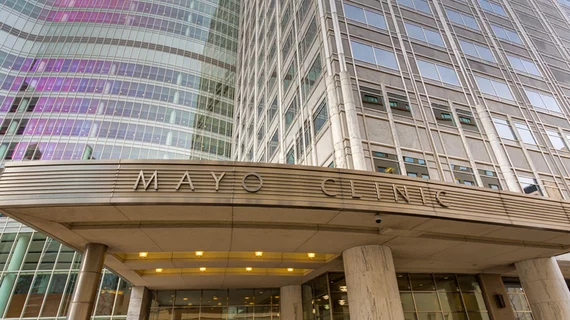1 new platform, 2 new companies sprout in Rochester, Minn.
Mayo Clinic has established a new AI-enabled tech platform and spawned two companies to leverage the might of its Big Data inputs.
The platform’s name tips its purpose. Calling it RDMP for Remote Diagnostics and Management Platform, the institution says the idea is to support clinical decisionmaking on both ends of “event-driven medicine,” those being diagnostics and therapeutics.
Also implied in its naming is the platform’s primary intended user base—clinicians providing patient care virtually.
“The dramatically increased use of remote patient telemetry devices coupled with the rapidly accelerating development of AI and machine learning algorithms has the potential to revolutionize diagnostic medicine,” says John Halamka, MD, president of Mayo Clinic Platform. “With RDMP, clinicians will have access to best-in-class algorithms and care protocols and will be able to serve more patients effectively in remote care settings.”
Halamka adds that another key aim is helping patients take an active role in their care decisions by supplying them with personalized insights and recommendations.
As for the two new companies, one called Anumana will endeavor to develop and commercialize AI-enabled algorithms while sister spinoff Lucem Health collects, orchestrates and curates data.
Mayo is partnering with health AI startup Nference on Anumama and with patient experience innovator Commure on Lucem Health.
Mayo says the announcement represents the latest advancement in Mayo Clinic Platform’s development of “an ecosystem of partners and capabilities that complement Mayo’s clinical capabilities and provide access to scalable solutions.”
Launched in the summer of 2020, Mayo Clinic Platform is “a coordinated portfolio approach to create new platform ventures and leverage emerging technologies, including AI, connected healthcare devices and natural language processing.”
This week’s RDMP announcement here. Last year’s Mayo Clinic Platform introduction here.

